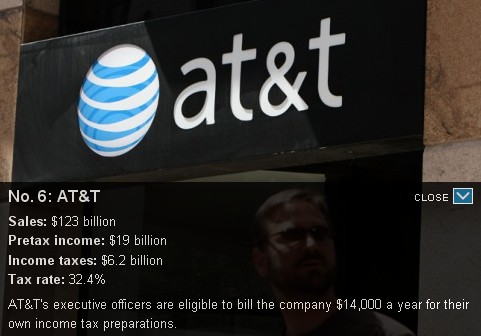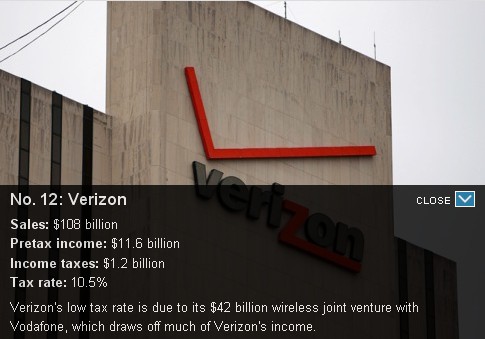 “It’s FairPoint Communications all over again,” writes Stop the Cap! reader Jenna who is mad as hell with Verizon Communications who first locked her out of her e-mail account, and then accidentally deleted it, along with all of her e-mail, in preparation for the handover to Frontier Communications.
“It’s FairPoint Communications all over again,” writes Stop the Cap! reader Jenna who is mad as hell with Verizon Communications who first locked her out of her e-mail account, and then accidentally deleted it, along with all of her e-mail, in preparation for the handover to Frontier Communications.
Jenna is referring to similar debacles which caused billing and service nightmares for residents in northern New England who lost their Internet access for days, along with e-mail accounts, followed by months of inaccurate bills when FairPoint moved away from Verizon’s internal systems.
Her problems started the last weekend of March, when Verizon notified Jenna and other Fort Wayne, Indiana residents who use Verizon Yahoo! e-mail service that they would have to take steps to convert their e-mail accounts.
Verizon Yahoo!: Service No Longer Available in Some Areas
Starting March 27, 2010, Verizon Yahoo! for Broadband will be discontinued in the following areas:
AZ, ID, IL, IN, MI, NV, NC (except Knotts Island), OH, OR, SC, Crows-Hermatite (VA), WA, WI, and the following communities in California that border AZ, NV and OR–Big River, Blythe, Coleville, Crescent City, Desert Center, Eagle Mountain, Earp, Felicity, Fort Dick, Gasquet, Klamath, Kneeland, Markleeville, Merced, Needles, Orick, Parker Dam, Ripley, Smith River, Topaz, Trinidad, Vidal and Winterhaven.
These changes will not impact your Verizon Internet service access plan or pricing, and your Verizon.net email primary and sub-account User names and passwords will stay the same.
“They told us we would have to use this service called Verizon TrueSwitch in order to convert our e-mail box and that all of our contacts and existing e-mail would be transferred from the old Yahoo! webmail account to the new Verizon one,” Jenna writes.
But her experience with Verizon TrueSwitch turned into a TrueNightmare when attempts to use the service resulted in error messages.
“First it popped up with ‘unable to authenticate’ error messages, and then we were locked out of our Yahoo! e-mail account. The Verizon e-mail account worked, but was empty,” she writes. “I tried to use Verizon’s ‘in-home agent’ online support but it suddenly told me it was ‘only available to Verizon customers.’ Apparently they can’t wait to get rid of us.”
Jenna then did what most customers of a phone company might do — she picked up her phone and called customer service.
“That was the second nightmare — I waited on hold 49 minutes the first time before a representative came on the line, sneezed, and then disconnected me. The second call was a real marathon — over two hours on hold waiting for someone to help me,” Jenna notes.
When a representative did finally speak to Jenna, she apologized for the delay and candidly admitted their call center was swamped with calls regarding the e-mail conversion.
“When she thought she put me on hold, I was able to overhear her talking with someone else about getting word from a supervisor that the problem was somewhere on their end, and she felt bad because she had spent a good part of the morning blaming TrueSwitch, which I later found out was not even owned by Verizon — it’s a service sold by Esaya, a private third-party company,” Jenna says.
 Jenna was transferred to a supervisor when attempts to correct her e-mail account lockout were not working.
Jenna was transferred to a supervisor when attempts to correct her e-mail account lockout were not working.
“The guy they transferred me to wouldn’t listen to me and kept telling me he knew what the problem was, claiming I had ‘sub-accounts’ and they were messing up their systems,” said Jenna. “But Mr. Expert ended up permanently deleting the account, along with all of my e-mail, contacts, and everything else Verizon claimed I was able to store online. Years of e-mail and contacts — gone.”
Jenna was right when she noted Verizon’s call centers were jammed with customers experiencing similar problems.
Verizon’s own customer support forum is hot with angry customers who are going through the same thing:
- Verizon/Yahoo! ‘Devilish Switch’
- Verizon Sold Everything to Frontier
- I’m Not Able to Receive E-Mail
- New Set-Up
- Verizon E-Mail Has Been Down for a Week
Verizon spokesman Harry Mitchell acknowledged the significant e-mail conversion issues were partly in preparation for the pending transition some customers face to Frontier Communications.
“The systems realignment will facilitate the closing of the transaction with Frontier, which we expect at the end of the second quarter, subject to conditions including regulatory approval,” Mitchell told the Fort Wayne Journal-Gazette.
Mitchell released a statement to the paper regarding the problems:
“In advance of a planned systems conversion over the weekend of March 27-28, Verizon online users who maintain e-mail accounts with Yahoo were notified that a customer-initiated service change would be required following the systems conversion in order to maintain their e-mail service,” he said in an e-mail.
“Customers were given instructions to use a ‘Trueswitch’ service to migrate their existing e-mail and contact information from Verizon Yahoo to Verizon servers in order to maintain e-mail access. Some customers have experienced difficulty when trying to initiate the service change. We’re working to address this as quickly as possible with those customers.”
Mitchell stressed that customers should make sure they validate their passwords in both the Verizon.net e-mail system and the Verizon Yahoo e-mail system. And they should “take extra care to write down those passwords so that, if they want to migrate their old e-mail and contact information, it will go smoothly through the Trueswitch process.”
Unfortunately, that won’t help Jenna.
A supervisor contacted her this week to apologize for the problems and the loss of her e-mail, which may not be gone for good if Verizon and Yahoo! can figure out a way to get the deleted account back, but for Jenna the damage has been done.
“I have read Stop the Cap! since 2008 and followed the misadventures of FairPoint Communications and the endless promises from Frontier they won’t repeat the mistakes the others have made, but it’s a case of ‘here we go again,’ and Frontier isn’t even in the picture yet,” she says. “Verizon clearly can’t wait to get rid of us and Frontier will probably make us wish we had Verizon back, which should tell you the people of Fort Wayne now live on the corner of Rock Avenue and Hard Place.”


 Subscribe
Subscribe



